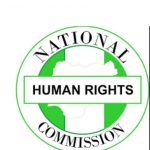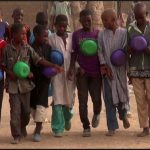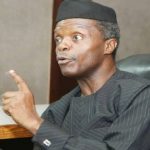In order to combat the problem of child rights violations and poverty throughout the nation, the Nigerian Economic Summit Group (NESG) and UNICEF have signed a Memorandum of Understanding (MoU).
The goal of the collaboration, according to NESG Chairman Mr. Niyi Yusuf, who spoke at the occasion, which was held at the United Nations office in Abuja, was to work with UNICEF to support the Nigerian government’s initiatives to address issues impacting children and combat poverty in the nation.
According to him, the partnership aims to help Nigeria achieve the Sustainable Development Goals in education, health, and other child rights issues.
Its goal is to interface with and advocate for a child-centered approach to development in Nigeria at the highest policy levels.
“From the Nigerian and NESG perspectives, our view is that the Nigerian children actually represent the greatest assets to this country.
“We keep saying that our children are the leaders of tomorrow and so it’s important that we must invest and plant the seeds to ensure that these children truly become the leaders of tomorrow.”
According to the Multi-Dimensional Poverty Index (MPI) released in 2022, two thirds of Nigerian children were multi dimensionally poor which means they lacked access to health, education and income, he said.
Also, that more than 50 per cent of the children of poor people have poor early childhood development.
“So, if a child suffers any negative growth in early childhood, you are laying a not so good foundation for tomorrow and for us at the NESG,” Yusuf said.
He added that the focus of NESG is to promote the modernisation of the Nigerian economy to one that is sustainable, globally competitive and promotes shared prosperity.
“We believe that urgent action is required to ensure that we do the right things to promote the development of our children and for those children to then become the leaders, consumers and workforce of tomorrow.”
Earlier today, we joined hands with UNICEF to establish a partnership aimed at addressing child rights violations and poverty in Nigeria.
Learn more at https://t.co/xw2aNjZ88m pic.twitter.com/6z9Hhx0J1W— Nigerian Economic Summit Group (NESG) (@officialNESG) February 9, 2023
Also speaking, the Country Representative of UNICEF, Ms. Christian Munduate, said that talking about children’s rights means ensuring that everybody who is not a child has a responsibility to children from where they are.
Munduate said “parents need to take care of their children, families need to have a strong network, communities have to build an enabling environment, state and Federal Governments, civil society organisations and media” all have a role to play.
Munduate added that 54 per cent of Nigerian children still faced multidimensional poverty, “meaning lack of either water or sanitation.”
She, however, said that correcting the situation required a lot of commitment from all Nigerians.
Munduate added that NESG was one of the organisations in the country that proposed social and public policies for the country and embraced a powerful network of civil society organisations and private sector.
According to her, UNICEF’s partnership with the organisation would enhance the promotion of child rights in the country.
Munduate added: “UNICEF is dedicated to protecting children’s rights in Nigeria and worldwide and helping them build a strong foundation for their future.”














